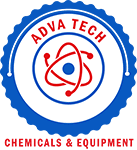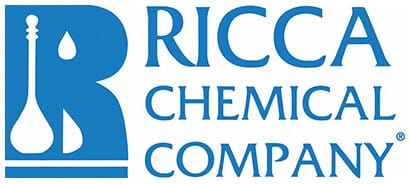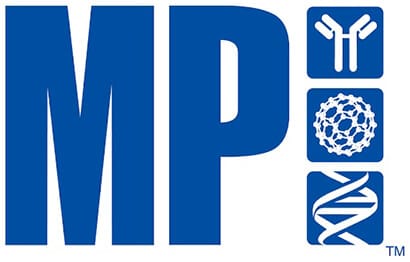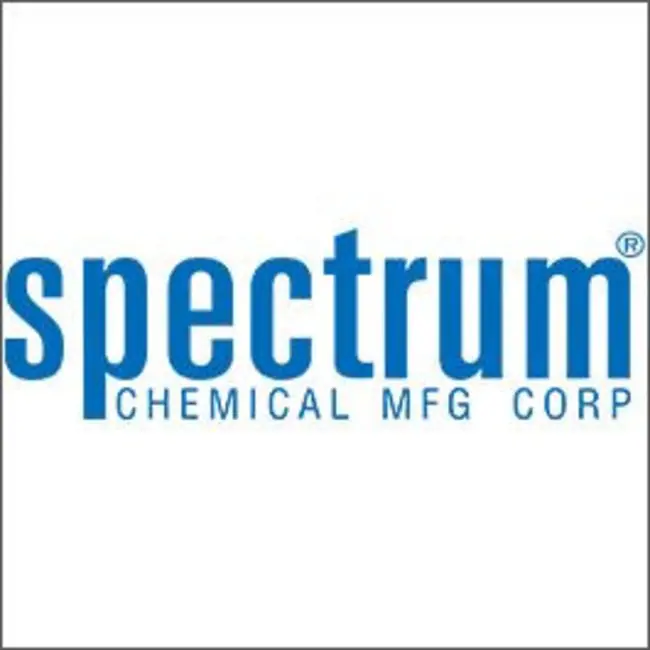GenScript Biotech
Showing 1951–2000 of 2554 results
-
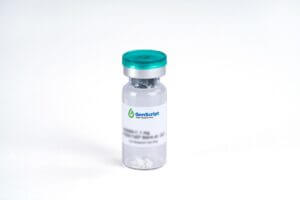
PDGF-BB, Mouse
$1,470.56 Add to cart View Product DetailsPlatelet-Derived Growth Factor-BB (PDGF-BB) is one of five dimers (PDGF-AA, AB, BB, CC, and DD) formed by 4 different PDGF subunits. In vivo, PDGF-BB is mainly produced in heart and placenta, and predominantly expressed by osteoblasts, fibroblasts, smooth muscle cells, and glial cells. An inactive precursor of PDGF-BB is produced in the endoplasmic reticulum and then activated by a proprotein convertase after secretion. PDGF-BB functions in a paracrine manner and promotes organogenesis, human skeletal development, and wound healing. PDGF-BB also promotes angiogenesis, particularly in the presence of Fibroblast Growth Factor basic. Therefore, PDGF-BB and its related pathways are potential pharmacological targets.
-
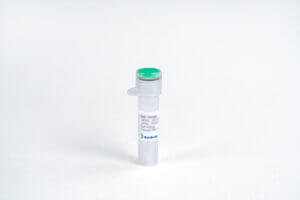
PDGF-BB, Mouse
$86.25 Add to cart View Product DetailsPlatelet-Derived Growth Factor-BB (PDGF-BB) is one of five dimers (PDGF-AA, AB, BB, CC, and DD) formed by 4 different PDGF subunits. In vivo, PDGF-BB is mainly produced in heart and placenta, and predominantly expressed by osteoblasts, fibroblasts, smooth muscle cells, and glial cells. An inactive precursor of PDGF-BB is produced in the endoplasmic reticulum and then activated by a proprotein convertase after secretion. PDGF-BB functions in a paracrine manner and promotes organogenesis, human skeletal development, and wound healing. PDGF-BB also promotes angiogenesis, particularly in the presence of Fibroblast Growth Factor basic. Therefore, PDGF-BB and its related pathways are potential pharmacological targets.
-

PDGF-BB, Mouse
$194.06 Add to cart View Product DetailsPlatelet-Derived Growth Factor-BB (PDGF-BB) is one of five dimers (PDGF-AA, AB, BB, CC, and DD) formed by 4 different PDGF subunits. In vivo, PDGF-BB is mainly produced in heart and placenta, and predominantly expressed by osteoblasts, fibroblasts, smooth muscle cells, and glial cells. An inactive precursor of PDGF-BB is produced in the endoplasmic reticulum and then activated by a proprotein convertase after secretion. PDGF-BB functions in a paracrine manner and promotes organogenesis, human skeletal development, and wound healing. PDGF-BB also promotes angiogenesis, particularly in the presence of Fibroblast Growth Factor basic. Therefore, PDGF-BB and its related pathways are potential pharmacological targets.
-

PDGF-BB, Rat
$1,470.56 Add to cart View Product DetailsPlatelet-Derived Growth Factor-BB (PDGF-BB) is one of five dimers (PDGF-AA, AB, BB, CC, and DD) formed by 4 different PDGF subunits. In vivo, PDGF-BB is mainly produced in heart and placenta, and predominantly expressed by osteoblasts, fibroblasts, smooth muscle cells, and glial cells. An inactive precursor of PDGF-BB is produced in the endoplasmic reticulum and then activated by a proprotein convertase after secretion. PDGF-BB functions in a paracrine manner and promotes organogenesis, human skeletal development, and wound healing. PDGF-BB also promotes angiogenesis, particularly in the presence of Fibroblast Growth Factor basic. Therefore, PDGF-BB and its related pathways are potential pharmacological targets.
-

PDGF-BB, Rat
$86.25 Add to cart View Product DetailsPlatelet-Derived Growth Factor-BB (PDGF-BB) is one of five dimers (PDGF-AA, AB, BB, CC, and DD) formed by 4 different PDGF subunits. In vivo, PDGF-BB is mainly produced in heart and placenta, and predominantly expressed by osteoblasts, fibroblasts, smooth muscle cells, and glial cells. An inactive precursor of PDGF-BB is produced in the endoplasmic reticulum and then activated by a proprotein convertase after secretion. PDGF-BB functions in a paracrine manner and promotes organogenesis, human skeletal development, and wound healing. PDGF-BB also promotes angiogenesis, particularly in the presence of Fibroblast Growth Factor basic. Therefore, PDGF-BB and its related pathways are potential pharmacological targets.
-

PDGF-BB, Rat
$194.06 Add to cart View Product DetailsPlatelet-Derived Growth Factor-BB (PDGF-BB) is one of five dimers (PDGF-AA, AB, BB, CC, and DD) formed by 4 different PDGF subunits. In vivo, PDGF-BB is mainly produced in heart and placenta, and predominantly expressed by osteoblasts, fibroblasts, smooth muscle cells, and glial cells. An inactive precursor of PDGF-BB is produced in the endoplasmic reticulum and then activated by a proprotein convertase after secretion. PDGF-BB functions in a paracrine manner and promotes organogenesis, human skeletal development, and wound healing. PDGF-BB also promotes angiogenesis, particularly in the presence of Fibroblast Growth Factor basic. Therefore, PDGF-BB and its related pathways are potential pharmacological targets.
-

PDGF-CC, Human
$68.14 Add to cart View Product DetailsPlatelet-Derived Growth Factor (PDGF) is a potent mitogen for a wide range of cell types including fibroblasts, smooth muscle, connective tissue, bone and cartilage cells, and some blood cells. The PDGF is involved in a number of biological processes, including hyperplasia, chemotaxis, embryonic neuron development, and respiratory tubule epithelial cell development. The PDGF family consists of proteins derived from four genes (PDGF -A, -B, -C, and -D) that form four disulfide-linked homodimers (PDGF-AA, -BB, -CC, and -DD) and one heterodimer (PDGF-AB).
-

PDGF-CC, Human
$155.25 Add to cart View Product DetailsPlatelet-Derived Growth Factor (PDGF) is a potent mitogen for a wide range of cell types including fibroblasts, smooth muscle, connective tissue, bone and cartilage cells, and some blood cells. The PDGF is involved in a number of biological processes, including hyperplasia, chemotaxis, embryonic neuron development, and respiratory tubule epithelial cell development. The PDGF family consists of proteins derived from four genes (PDGF -A, -B, -C, and -D) that form four disulfide-linked homodimers (PDGF-AA, -BB, -CC, and -DD) and one heterodimer (PDGF-AB).
-

PDGF-DD, Human
$86.25 Add to cart View Product DetailsPDGF-DD, also known as platelet-derived growth factor D, IEGF and SCDGFB, is asecreted growth factor belonging to the PDGF/VEGFfamily. It is highly expressed in the heart, pancreas, adrenal glands and ovary. PDGF-DD forms functional homodimers that bind and induce PDGF Rβ homodimers and PDGF Rα/β heterodimers that promote intracellular signaling. This plays an important role in the regulation of cell differentiation, migration and survival. It has also been reported that PDGF-DD can induce monocyte and macrophage recruitment, increase interstitial pressure and facilitate wound healing.
-

PDGF-DD, Human
$194.06 Add to cart View Product DetailsPDGF-DD, also known as platelet-derived growth factor D, IEGF and SCDGFB, is asecreted growth factor belonging to the PDGF/VEGFfamily. It is highly expressed in the heart, pancreas, adrenal glands and ovary. PDGF-DD forms functional homodimers that bind and induce PDGF Rβ homodimers and PDGF Rα/β heterodimers that promote intracellular signaling. This plays an important role in the regulation of cell differentiation, migration and survival. It has also been reported that PDGF-DD can induce monocyte and macrophage recruitment, increase interstitial pressure and facilitate wound healing.
-

PEDF, Human
$2,596.13 Add to cart View Product DetailsPEDF is a noninhibitory serpin with neurotrophic, anti-angiogenic, and anti-tumorigenic properties. It is a 50 kDa glycoprotein produced and secreted in many tissues throughout the body. A major component of the anti-angiogenic action of PEDF is the induction of apoptosis in proliferating endothelial cells. In addition, PEDF is able to inhibit the activity of angiogenic factors such as VEGF and FGF-2. The neuroprotective effects of PEDF are achieved through suppression of neuronal apoptosis induced by peroxide, glutamate, or other neurotoxins. The recent identification of a lipase-linked cell membrane receptor for PEDF (PEDF-R) that binds to PEDF with high affinity should facilitate further elucidation of the underlying mechanisms of this pluripotent serpin. To date, PEDF-R is the only signaling receptor known to be used by a serpin family member. The unique range of PEDF activities implicate it as a potential therapeutic agent for the treatment of vasculature related neurodegenerative diseases such as age-related macular degeneration (AMD) and proliferative diabetic retinopathy (PDR). PEDF also has the potential to be useful in the treatment of various angiogenesis-related diseases including a number of cancers.
-

PEDF, Human
$155.25 Add to cart View Product DetailsPEDF is a noninhibitory serpin with neurotrophic, anti-angiogenic, and anti-tumorigenic properties. It is a 50 kDa glycoprotein produced and secreted in many tissues throughout the body. A major component of the anti-angiogenic action of PEDF is the induction of apoptosis in proliferating endothelial cells. In addition, PEDF is able to inhibit the activity of angiogenic factors such as VEGF and FGF-2. The neuroprotective effects of PEDF are achieved through suppression of neuronal apoptosis induced by peroxide, glutamate, or other neurotoxins. The recent identification of a lipase-linked cell membrane receptor for PEDF (PEDF-R) that binds to PEDF with high affinity should facilitate further elucidation of the underlying mechanisms of this pluripotent serpin. To date, PEDF-R is the only signaling receptor known to be used by a serpin family member. The unique range of PEDF activities implicate it as a potential therapeutic agent for the treatment of vasculature related neurodegenerative diseases such as age-related macular degeneration (AMD) and proliferative diabetic retinopathy (PDR). PEDF also has the potential to be useful in the treatment of various angiogenesis-related diseases including a number of cancers.
-

Pembrolizumab Immunogenicity Kit (Bridging ELISA)
$429.53 Add to cart View Product DetailsGenScript Pembrolizumab Immunogenicity Kit (Bridging ELISA) is used for detection of anti-Pembrolizumab antibody in serum and plasma samples. It is a validated bridging immunoassay based on the FDA, EMA and NMPA Immunogenicity Guidelines. The kit has been proved to be highly sensitive, specific, and free from matrix effect in the validation study.
-

Pembrolizumab Pharmacokinetic ELISA Kit
$429.53 Add to cart View Product DetailsGenScript’s Pembrolizumab Pharmacokinetic ELISA Kit had been comprehensively developed and validated for quantitative measurement of Pembrolizumab in cynomolgus monkey serum and plasma, based on the ICH M10 and the FDA bioanalytical method validation guidance for industry.
-
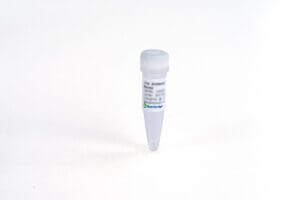
Pepsinogen II Antibody (1H9), mAb, Mouse
$127.65 Add to cart View Product DetailsPepsinogen are aspartic proteinases, which are classified into two groups: pepsinogen I (PGI) and pepsinogen II (PGII). PGI and PGII are mainly secreted by gastric chief cells. PGI and PGII are of useful aid in diagnosing severe atrophic gastritis and stomach cancer.
-

Pepsinogen II Antibody (1H9), mAb, Mouse
$1,276.50 Add to cart View Product DetailsPepsinogen are aspartic proteinases, which are classified into two groups: pepsinogen I (PGI) and pepsinogen II (PGII). PGI and PGII are mainly secreted by gastric chief cells. PGI and PGII are of useful aid in diagnosing severe atrophic gastritis and stomach cancer.
-

Pepsinogen II Antibody (1H9), mAb, Mouse
$10,867.50 Add to cart View Product DetailsPepsinogen are aspartic proteinases, which are classified into two groups: pepsinogen I (PGI) and pepsinogen II (PGII). PGI and PGII are mainly secreted by gastric chief cells. PGI and PGII are of useful aid in diagnosing severe atrophic gastritis and stomach cancer.
-

Pepsinogen II Antibody (5D5), mAb, Mouse
$127.65 Add to cart View Product DetailsPepsinogen are aspartic proteinases, which are classified into two groups: pepsinogen I (PGI) and pepsinogen II (PGII). PGI and PGII are mainly secreted by gastric chief cells. PGI and PGII are of useful aid in diagnosing severe atrophic gastritis and stomach cancer.
-

Pepsinogen II Antibody (5D5), mAb, Mouse
$1,276.50 Add to cart View Product DetailsPepsinogen are aspartic proteinases, which are classified into two groups: pepsinogen I (PGI) and pepsinogen II (PGII). PGI and PGII are mainly secreted by gastric chief cells. PGI and PGII are of useful aid in diagnosing severe atrophic gastritis and stomach cancer.
-

Pepsinogen II Antibody (5D5), mAb, Mouse
$10,867.50 Add to cart View Product DetailsPepsinogen are aspartic proteinases, which are classified into two groups: pepsinogen I (PGI) and pepsinogen II (PGII). PGI and PGII are mainly secreted by gastric chief cells. PGI and PGII are of useful aid in diagnosing severe atrophic gastritis and stomach cancer.
-

Pepsinogen II Antibody (61C4), mAb, Mouse
$127.65 Add to cart View Product DetailsPepsinogen are aspartic proteinases, which are classified into two groups: pepsinogen I (PGI) and pepsinogen II (PGII). PGI and PGII are mainly secreted by gastric chief cells. PGI and PGII are of useful aid in diagnosing severe atrophic gastritis and stomach cancer.
-

Pepsinogen II Antibody (61C4), mAb, Mouse
$1,276.50 Add to cart View Product DetailsPepsinogen are aspartic proteinases, which are classified into two groups: pepsinogen I (PGI) and pepsinogen II (PGII). PGI and PGII are mainly secreted by gastric chief cells. PGI and PGII are of useful aid in diagnosing severe atrophic gastritis and stomach cancer.
-

Pepsinogen II Antibody (61C4), mAb, Mouse
$10,867.50 Add to cart View Product DetailsPepsinogen are aspartic proteinases, which are classified into two groups: pepsinogen I (PGI) and pepsinogen II (PGII). PGI and PGII are mainly secreted by gastric chief cells. PGI and PGII are of useful aid in diagnosing severe atrophic gastritis and stomach cancer.
-

Pepsinogen II Antibody (7E8), mAb, Mouse
$127.65 Add to cart View Product DetailsPepsinogen are aspartic proteinases, which are classified into two groups: pepsinogen I (PGI) and pepsinogen II (PGII). PGI and PGII are mainly secreted by gastric chief cells. PGI and PGII are of useful aid in diagnosing severe atrophic gastritis and stomach cancer.
-

Pepsinogen II Antibody (7E8), mAb, Mouse
$1,276.50 Add to cart View Product DetailsPepsinogen are aspartic proteinases, which are classified into two groups: pepsinogen I (PGI) and pepsinogen II (PGII). PGI and PGII are mainly secreted by gastric chief cells. PGI and PGII are of useful aid in diagnosing severe atrophic gastritis and stomach cancer.
-

Pepsinogen II Antibody (7E8), mAb, Mouse
$10,867.50 Add to cart View Product DetailsPepsinogen are aspartic proteinases, which are classified into two groups: pepsinogen I (PGI) and pepsinogen II (PGII). PGI and PGII are mainly secreted by gastric chief cells. PGI and PGII are of useful aid in diagnosing severe atrophic gastritis and stomach cancer.
-
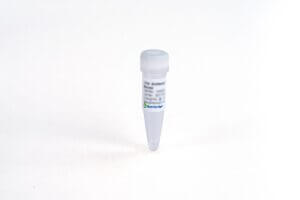
Pepsinogen II Antibody (7G1), mAb, Mouse
$130.24 Add to cart View Product DetailsPepsinogen are aspartic proteinases, which are classified into two groups: pepsinogen I (PGI) and pepsinogen II (PGII). PGI and PGII are mainly secreted by gastric chief cells. PGI and PGII are of useful aid in diagnosing severe atrophic gastritis and stomach cancer.
-

Pepsinogen II Antibody (7G1), mAb, Mouse
$1,302.38 Add to cart View Product DetailsPepsinogen are aspartic proteinases, which are classified into two groups: pepsinogen I (PGI) and pepsinogen II (PGII). PGI and PGII are mainly secreted by gastric chief cells. PGI and PGII are of useful aid in diagnosing severe atrophic gastritis and stomach cancer.
-

Pepsinogen II Antibody (7G1), mAb, Mouse
$11,070.19 Add to cart View Product DetailsPepsinogen are aspartic proteinases, which are classified into two groups: pepsinogen I (PGI) and pepsinogen II (PGII). PGI and PGII are mainly secreted by gastric chief cells. PGI and PGII are of useful aid in diagnosing severe atrophic gastritis and stomach cancer.
-
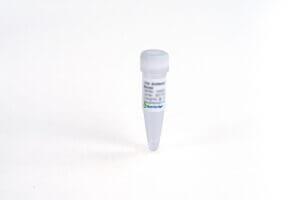
Pepsinogen II Antibody (8F5), mAb, Mouse
$130.24 Add to cart View Product DetailsPepsinogen are aspartic proteinases, which are classified into two groups: pepsinogen I (PGI) and pepsinogen II (PGII). PGI and PGII are mainly secreted by gastric chief cells. PGI and PGII are of useful aid in diagnosing severe atrophic gastritis and stomach cancer.
-

Pepsinogen II Antibody (8F5), mAb, Mouse
$1,302.38 Add to cart View Product DetailsPepsinogen are aspartic proteinases, which are classified into two groups: pepsinogen I (PGI) and pepsinogen II (PGII). PGI and PGII are mainly secreted by gastric chief cells. PGI and PGII are of useful aid in diagnosing severe atrophic gastritis and stomach cancer.
-

Pepsinogen II Antibody (8F5), mAb, Mouse
$11,070.19 Add to cart View Product DetailsPepsinogen are aspartic proteinases, which are classified into two groups: pepsinogen I (PGI) and pepsinogen II (PGII). PGI and PGII are mainly secreted by gastric chief cells. PGI and PGII are of useful aid in diagnosing severe atrophic gastritis and stomach cancer.
-

Pertuzumab Immunogenicity Kit (Bridging ELISA)
$429.53 Add to cart View Product DetailsGenScript Pertuzumab Immunogenicity Kit (Bridging ELISA) is designed for detection of anti-Pertuzumab antibody in serum and plasma samples. This kit utilizes a validated bridging immunoassay method based on the FDA, EMA and NMPA Immunogenicity Guidelines
-

Pertuzumab Pharmacokinetic ELISA Kit
$429.53 Add to cart View Product DetailsThe Pertuzumab ELISA kit is a validated tool for whole Pertuzumab and its biosimilar quantification in biological matrices for drug research and development. GenScript’s Pertuzumab Pharmacokinetic ELISA Kit had been comprehensively developed and validated for quantitative measurement of Pertuzumab in cynomolgus monkey serum and plasma, based on the ICH M10 and the FDA bioanalytical method validation guidance for industry
-

PF-4/CXCL4, Human
$68.14 Add to cart View Product DetailsPlatelet factor 4, also known as CXCL4, is expressed in megakaryocytes and stored in the α-granules of platelets. Recombinant human PF-4 is a 7.8 kDa protein containing 70 amino acid residues, including the four highly conserved residues present in CXC chemokines. Platelet factor 4 can be antiproliferative and antiangiogenic, at least in part via interfering with FGF2 and VEGF heparin binding and thus inhibiting their signaling. However, it can also be proinflammatory and proatherogenic through multiple effects on monocytes, macrophages and endothelial cells.
-

PF-4/CXCL4, Human
$155.25 Add to cart View Product DetailsPlatelet factor 4, also known as CXCL4, is expressed in megakaryocytes and stored in the α-granules of platelets. Recombinant human PF-4 is a 7.8 kDa protein containing 70 amino acid residues, including the four highly conserved residues present in CXC chemokines. Platelet factor 4 can be antiproliferative and antiangiogenic, at least in part via interfering with FGF2 and VEGF heparin binding and thus inhibiting their signaling. However, it can also be proinflammatory and proatherogenic through multiple effects on monocytes, macrophages and endothelial cells.
-

PGI (1H5), mAb, Mouse
$127.65 Add to cart View Product DetailsPepsinogens, aspartic proteinases, are classified into two groups, pepsinogen I (PGI) and pepsinogen II (PGII). PGI and PGII are mainly secreted by gastric chief cells. They are useful in diagnosing severe atrophic gastritis and stomach cancer.
-

PGI (1H5), mAb, Mouse
$1,276.50 Add to cart View Product DetailsPepsinogens, aspartic proteinases, are classified into two groups, pepsinogen I (PGI) and pepsinogen II (PGII). PGI and PGII are mainly secreted by gastric chief cells. They are useful in diagnosing severe atrophic gastritis and stomach cancer.
-

PGI (1H5), mAb, Mouse
$10,867.50 Add to cart View Product DetailsPepsinogens, aspartic proteinases, are classified into two groups, pepsinogen I (PGI) and pepsinogen II (PGII). PGI and PGII are mainly secreted by gastric chief cells. They are useful in diagnosing severe atrophic gastritis and stomach cancer.
-

PGI (5F2), mAb, Mouse
$127.65 Add to cart View Product DetailsPepsinogens, aspartic proteinases, are classified into two groups, pepsinogen I (PGI) and pepsinogen II (PGII). PGI and PGII are mainly secreted by gastric chief cells. They are useful in diagnosing severe atrophic gastritis and stomach cancer.
-

PGI (5F2), mAb, Mouse
$1,276.50 Add to cart View Product DetailsPepsinogens, aspartic proteinases, are classified into two groups, pepsinogen I (PGI) and pepsinogen II (PGII). PGI and PGII are mainly secreted by gastric chief cells. They are useful in diagnosing severe atrophic gastritis and stomach cancer.
-

PGI (5F2), mAb, Mouse
$10,867.50 Add to cart View Product DetailsPepsinogens, aspartic proteinases, are classified into two groups, pepsinogen I (PGI) and pepsinogen II (PGII). PGI and PGII are mainly secreted by gastric chief cells. They are useful in diagnosing severe atrophic gastritis and stomach cancer.
-

PGI (8C4), mAb, Mouse
$127.65 Add to cart View Product DetailsPepsinogens, aspartic proteinases, are classified into two groups, pepsinogen I (PGI) and pepsinogen II (PGII). PGI and PGII are mainly secreted by gastric chief cells. They are useful in diagnosing severe atrophic gastritis and stomach cancer.
-

PGI (8C4), mAb, Mouse
$1,276.50 Add to cart View Product DetailsPepsinogens, aspartic proteinases, are classified into two groups, pepsinogen I (PGI) and pepsinogen II (PGII). PGI and PGII are mainly secreted by gastric chief cells. They are useful in diagnosing severe atrophic gastritis and stomach cancer.
-

PGI (8C4), mAb, Mouse
$10,867.50 Add to cart View Product DetailsPepsinogens, aspartic proteinases, are classified into two groups, pepsinogen I (PGI) and pepsinogen II (PGII). PGI and PGII are mainly secreted by gastric chief cells. They are useful in diagnosing severe atrophic gastritis and stomach cancer.
-

PIVKA II (1C5), mAb, Mouse
$392.44 Add to cart View Product DetailsProtein Induced by Vitamin K Absence or Antagonist-II (PIVKA-II), also known as Des-γ-carboxy-prothrombin (DCP), is an abnormal form of prothrombin. Normally, the prothrombin’s 10 glutamic acid residues (Glu) in the γ-carboxyglutamic acid (Gla) domain at positions 6, 7, 14, 16, 19, 20,25, 26, 29 and 32 are γ-carboxylated to Gla by vitamin-K dependent γ- glutamyl carboxylase in the liver and then secreted into plasma. In patients with hepatocellular carcinoma (HCC), γ-carboxylation of prothrombin is impaired so that PIVKA-II is formed instead of prothrombin. PIVKA-II is considered as is an efficient biomarker specific for HCC.
-

PIVKA II (1C5), mAb, Mouse
$3,924.38 Add to cart View Product DetailsProtein Induced by Vitamin K Absence or Antagonist-II (PIVKA-II), also known as Des-γ-carboxy-prothrombin (DCP), is an abnormal form of prothrombin. Normally, the prothrombin’s 10 glutamic acid residues (Glu) in the γ-carboxyglutamic acid (Gla) domain at positions 6, 7, 14, 16, 19, 20,25, 26, 29 and 32 are γ-carboxylated to Gla by vitamin-K dependent γ- glutamyl carboxylase in the liver and then secreted into plasma. In patients with hepatocellular carcinoma (HCC), γ-carboxylation of prothrombin is impaired so that PIVKA-II is formed instead of prothrombin. PIVKA-II is considered as is an efficient biomarker specific for HCC.
-

PIVKA II (1C5), mAb, Mouse
$33,292.50 Add to cart View Product DetailsProtein Induced by Vitamin K Absence or Antagonist-II (PIVKA-II), also known as Des-γ-carboxy-prothrombin (DCP), is an abnormal form of prothrombin. Normally, the prothrombin’s 10 glutamic acid residues (Glu) in the γ-carboxyglutamic acid (Gla) domain at positions 6, 7, 14, 16, 19, 20,25, 26, 29 and 32 are γ-carboxylated to Gla by vitamin-K dependent γ- glutamyl carboxylase in the liver and then secreted into plasma. In patients with hepatocellular carcinoma (HCC), γ-carboxylation of prothrombin is impaired so that PIVKA-II is formed instead of prothrombin. PIVKA-II is considered as is an efficient biomarker specific for HCC.
-

PIVKA II (2D7), mAb, Mouse
$392.44 Add to cart View Product DetailsProtein Induced by Vitamin K Absence or Antagonist-II (PIVKA-II), also known as Des-γ-carboxy-prothrombin (DCP), is an abnormal form of prothrombin. Normally, the prothrombin’s 10 glutamic acid residues (Glu) in the γ-carboxyglutamic acid (Gla) domain at positions 6, 7, 14, 16, 19, 20,25, 26, 29 and 32 are γ-carboxylated to Gla by vitamin-K dependent γ- glutamyl carboxylase in the liver and then secreted into plasma. In patients with hepatocellular carcinoma (HCC), γ-carboxylation of prothrombin is impaired so that PIVKA-II is formed instead of prothrombin. PIVKA-II is considered as is an efficient biomarker specific for HCC.
-

PIVKA II (2D7), mAb, Mouse
$3,924.38 Add to cart View Product DetailsProtein Induced by Vitamin K Absence or Antagonist-II (PIVKA-II), also known as Des-γ-carboxy-prothrombin (DCP), is an abnormal form of prothrombin. Normally, the prothrombin’s 10 glutamic acid residues (Glu) in the γ-carboxyglutamic acid (Gla) domain at positions 6, 7, 14, 16, 19, 20,25, 26, 29 and 32 are γ-carboxylated to Gla by vitamin-K dependent γ- glutamyl carboxylase in the liver and then secreted into plasma. In patients with hepatocellular carcinoma (HCC), γ-carboxylation of prothrombin is impaired so that PIVKA-II is formed instead of prothrombin. PIVKA-II is considered as is an efficient biomarker specific for HCC.
